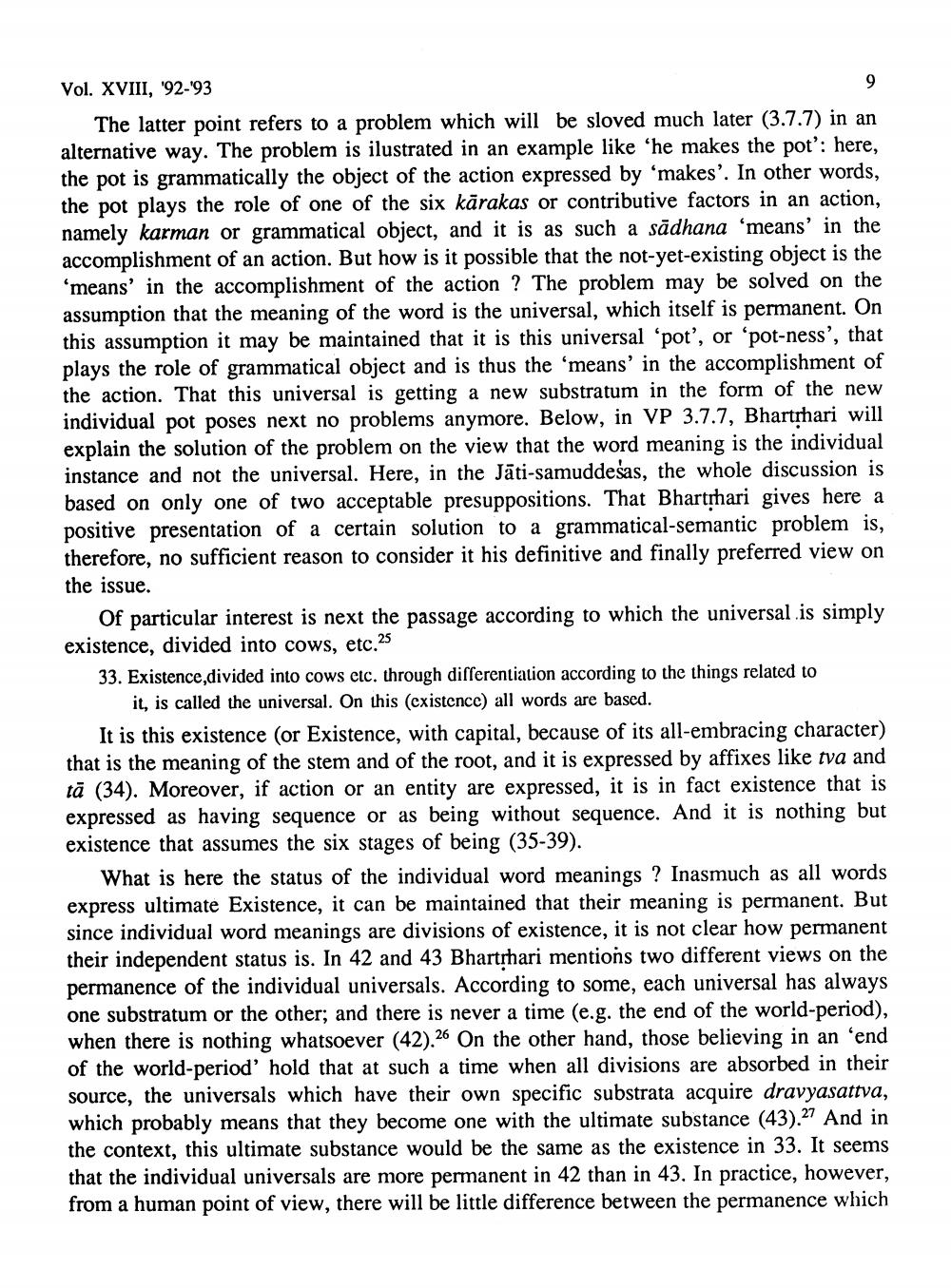________________
Vol. XVIII, 92-93
The latter point refers to a problem which will be sloved much later (3.7.7) in an alternative way. The problem is ilustrated in an example like 'he makes the pot': here, the pot is grammatically the object of the action expressed by ‘makes'. In other words, the pot plays the role of one of the six kārakas or contributive factors in an action, namely karman or grammatical object, and it is as such a sādhana ‘means' in the accomplishment of an action. But how is it possible that the not-yet-existing object is the ‘means' in the accomplishment of the action ? The problem may be solved on the assumption that the meaning of the word is the universal, which itself is permanent. On this assumption it may be maintained that it is this universal ‘pot', or ‘pot-ness', that plays the role of grammatical object and is thus the 'means' in the accomplishment of the action. That this universal is getting a new substratum in the form of the new individual pot poses next no problems anymore. Below, in VP 3.7.7, Bhartrhari will explain the solution of the problem on the view that the word meaning is the individual instance and not the universal. Here, in the Jāti-samuddešas, the whole discussion is based on only one of two acceptable presuppositions. That Bharthari gives here a positive presentation of a certain solution to a grammatical-semantic problem is, therefore, no sufficient reason to consider it his definitive and finally preferred view on the issue.
Of particular interest is next the passage according to which the universal is simply existence, divided into cows, etc.25 33. Existence,divided into cows etc. through differentiation according to the things related to
it, is called the universal. On this (cxistence) all words are based. It is this existence (or Existence, with capital, because of its all-embracing character) that is the meaning of the stem and of the root, and it is expressed by affixes like tva and tā (34). Moreover, if action or an entity are expressed, it is in fact existence that is expressed as having sequence or as being without sequence. And it is nothing but existence that assumes the six stages of being (35-39).
What is here the status of the individual word meanings ? Inasmuch as all words express ultimate Existence, it can be maintained that their meaning is permanent. But since individual word meanings are divisions of existence, it is not clear how permanent their independent status is. In 42 and 43 Bhartrhari mentions two different views on the permanence of the individual universals. According to some, each universal has always one substratum or the other; and there is never a time (e.g. the end of the world-period), when there is nothing whatsoever (42).26 On the other hand, those believing in an ‘end of the world-period' hold that at such a time when all divisions are absorbed in their source, the universals which have their own specific substrata acquire dravyasattva, which probably means that they become one with the ultimate substance (43).27 And in the context, this ultimate substance would be the same as the existence in 33. It seems that the individual universals are more permanent in 42 than in 43. In practice, however, from a human point of view, there will be little difference between the permanence which




